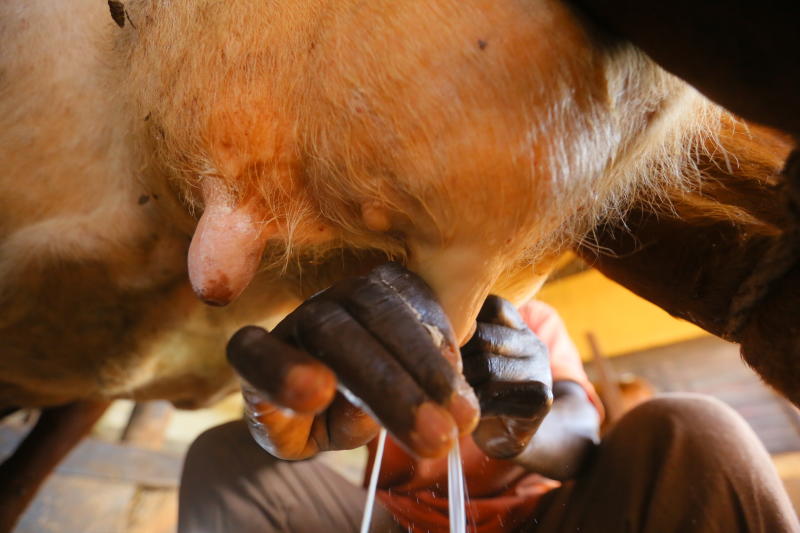A worker milks a cow at Kisii Agricultural Training Center. [Sammy Omingo, Standard]
×
The Standard e-Paper
Stay Informed, Even Offline

An acute shortage of milk has hit the county, with a litre now selling at Sh70, up from Sh40 last month.
Kenya National Federation of Farmers (Kenaff) said lack of pasture and increased price of animal feeds had affected milk production.